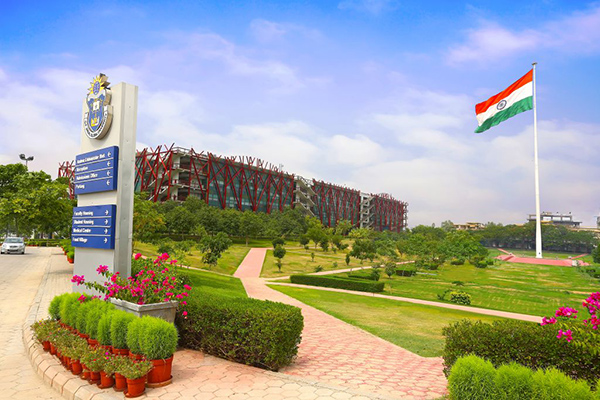Professor (Dr.) C. Raj Kumar, vice chancellor of Sonipat, Haryana based O.P. Jindal Global University (JGU) recently spoke during the Caspian Week at the World Economic Forum 2019 in Davos, Switzerland. Prof. Kumar is the only Indian vice chancellor invited to speak at this year’s WEF in Davos.
At Davos, Prof. Kumar spoke on the theme “Philanthropy and Higher Education: The Indian Experience of Building a Knowledge Society through Universities”. The speech addressed key issues in India’s higher education, impedance of research and knowledge creation, internationalisation and collaboration among universities and the challenges of building world-class universities in developing and emerging economies and potential lessons from the Indian experience.
The establishment of private universities in India, he said, has been highly recognised by national authorities and by global rankings agencies. Prof. Kumar cited the example of JGU as a model for corporate philanthropy and institutional excellence for building private universities in developing countries.
On the occasion, Prof. Kumar said, “Among the developing countries, India and China have provided leadership in building world class universities and institutions of global excellence. The future of higher education necessarily depends on the internationalisation of universities – public and private. In the era of robotics, mega-data, artificial intelligence and dynamic change, only universities of global standards will prosper, equipped with the ability to innovate and grasp the latest cutting edge knowledge and research. It is also important to recognise that universities need to be multidisciplinary with focus not only on STEM disciplines but also humanities, and social sciences.”
Prof. Kumar exhorted the leaders representing government organisations, trade and industry sectors in Davos to focus on the growth and development of universities. He said, “We need to take our universities more seriously. Our universities need significant funding, resources and indeed better governance. This can only enable them to focus on imparting world class education that will promote innovative pedagogy in teaching, rigorous research leading to outstanding publications by the faculty and internationalisation that will provide globally engaged opportunities to the faculty and students of the universities. The governments and businesses need to recognise the important role played by the universities for building a sustainable future and for the promotion of human development. They need to provide greater support to universities.”
Speaking at Davos, Prof. Kumar highlighted the importance of building world class universities that will focus on quality and excellence. Great universities around the world have a direct relationship to the development of economy and society. He said, “The new innovations that are taking place in the fields of science, technology, engineering and medicine expect individuals and institutions to drive this change through universities. The knowledge, expertise and skills that will shape the future will arise out of universities and hence, regardless of the state of economic development of a nation, they need to focus on building sound institutional capacities of their universities. It is through the success of the universities that they will be able to build a vibrant economy that will be driven by educated and skilled individuals who will promote excellence in all sectors – manufacturing, services and indeed new technologies.”
Professor Kumar cited the example of O.P. Jindal Global University in India as a stellar example of how corporate philanthropy coupled with notions of academic freedom and institutional autonomy has helped India see the emergence of a new private, not-for-profit, global university within a short span of time. It is noteworthy that JGU, which was promoted just a decade back by Naveen Jindal, has led the emergence of a new generation of private and philanthropic universities in India.
Professor Kumar said, “We need more and more universities in the world which will be contributing to the development of a Knowledge society. Out of the 26,000 universities in the world, Asia has nearly 13,000 universities and the BRICS is home to 9000 universities. However the challenge is how to build universities with a focus on excellence through recruitment of outstanding faculty, international engagement and cutting edge research.”
JGU is clearly the most international university in India with over 70 full time faculty members recruited from 32 countries in the world and it maintains a 1:10 faculty-student ratio. This is just 16 percent of JGU’s total faculty strength of nearly 440 mentoring nearly 4300 students. The various distinctions attained by JGU in recent years include the award of the highest grade “A” by the National Assessment and Assessment Council in India and grant of “Autonomy” by the University Grants Commission and the Ministry of Human Resource Development, becoming one of the only two private universities in India to achieve this coveted recognition. JGU is the youngest Indian university to feature in the QS World University Rankings by breaking into the QS BRICS Rankings 2019 and QS Asia Rankings 2019.
